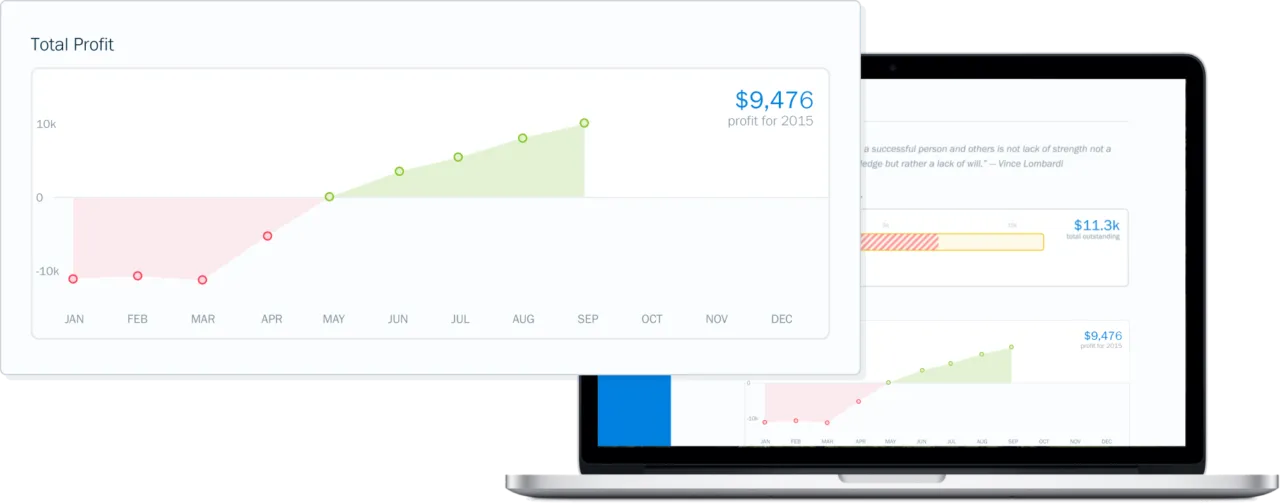Business Performance Report: How to Write a Business Performance Report?

A business performance report is a valuable business tool that provides an overview of how the business is performing. It combines information and analysis for forecasting revenues, expenses and profit for the upcoming year.
The business performance report is designed to assist the management in your business development. Data is collected from various sources and analyzed. This knowledge is used to improve business performance and for the identification of problems.
Key Takeaways
Business performance reporting is essential to growing your business and maintaining your financial position over time. Getting this objective, a big-picture view is also key for predicting future performance. Here’s what you need to know:
- Business performance reports are a simple but important process to help you gain insight into how your business is doing financially
- Business reporting is a key part of any business plan—it’s essential to ensuring solid cash flow and steady growth
- Writing performance reports has never been simpler than with online software such as FreshBooks
- Business performance reports should include a few key pieces of information, such as expenses, trends, performance history, and your key performance indicators (KPIs)
What this article covers:
Why Is Performance Reporting Important?
How to Write a Performance Report?
Key Elements of a Business Performance Report
What Is Business Performance?
Business performance refers to how well your company is performing by comparing the results of initiatives to objectives and evaluating to what extent you met your targets.
Instead of reviewing the performance of each division, business performance management looks at the business as a whole. It takes into account multiple factors, such as financial statements, customer satisfaction surrounding your work, business status reports, and more.

The purpose of business performance reports is to provide management with a clear and precise picture of the business’s cash flow, growth, and overall status. These insights will help leadership make key decisions and actions, such as decoding current performance levels, setting realistic goals, and evaluating any weaknesses to make improvements.
Every business has specific metrics that have to be monitored to improve business performance. For example, the primary operating variables for performance evaluation of a business could be sales and profitability.
Other key business performance indicators are:
- The market share and market ranking
- The rate of customer acquisition
- Liquidity and solvency ratios
Why Is Performance Reporting Important?
Understanding business performance against goals and objectives is the key to running a successful business. Businesses must continuously assess and report their targets, goals, and objectives and make necessary adjustments.
To boost business process optimization, you need to measure and report different parameters such as customer satisfaction levels, sales, expenses and profits and the rate of inventory turnover.
The following are some of the key reasons companies need to focus on performance reporting:
Benchmarking
Benchmarking encourages a business to be open to new methods to improve efficiency and productivity while enhancing customer satisfaction. Performance reporting provides essential data that helps in analyzing and identifying new opportunities. Benchmarking also eliminates guesswork and provides resolution to specific problems.
Monitor the Workforce
The use of key performance indicators by businesses helps in controlling employee behavior and defines their performance. The managers are able to set goals and then assess the achievement of the goals. When there are issues, feedback is provided to eliminate variances and improve conformity.
This improves employee performance, helps expand the business process, and strengthens the cohesion between subordinates and the employer.
Preparing External Reports
Businesses often have to prepare reports to comply with reporting regulations. This reporting could be compulsory such as annual reports or it could be voluntary, where the company produces reports to help strengthen its corporate social responsibility. Performance reporting assists in the preparation of external business reports.
Enhance Business Performance
Since performance reporting provides real-time information about the performance of a business, it can be used to reshape strategic assumptions and set realistic and achievable targets. Achievable and realistic goals improve employee morale and lead to increased productivity and profitability.
Improves Communication
By focusing on sales opportunities, performance reporting improves customer insights. The reports help business owners understand the needs of the consumers. It also helps investors understand the current status of the business performance and where it’s heading.
How to Write a Performance Report?
Business performance reports are important, but it takes a little know-how to perform the reporting process effectively. There are a few key points to keep in mind, including:
Collect Relevant Data
When putting together the framework of your business performance report, it’s vital that you only put time and energy into collecting the data that will help you. Keep your reports to the essentials, which we’ll go over shortly.
Organize and Analyze Data Properly
The way you store this data for future analysis is an important factor. If you’re still handling your bookkeeping process manually, this will be much more difficult than if you use online accounting software, especially one with reporting capabilities.
Select the Right Metrics
You’ll want to be using the right metrics and key performance indicators (KPIs) to mark the performance of your business. The best KPIs differ greatly depending on your industry, but they could include website traffic, leads, event sign-ups, or sales.
Present Findings Clearly
When it’s time to assemble your data into a report, you’ll need to use a report format that’s easy to read and interpret. Make it as simple but informative as you possibly can—a good tool for this can be FreshBooks, which automatically generates simple but useful financial reports based on your data. Click here to learn more.
Incorporate Recommendations for Improvement
Lastly, it’s important that you do more than showcase your data with financial reporting. You’ll need to use that information to your advantage to forecast future trends in your business performance, allowing you to strategize future decisions for optimal growth.

Key Elements of a Business Performance Report
Here are some of the key elements that must be included in the business performance reports:
- Objective and high-level goals of the company
- Past revenue data and expected revenue trends
- Past and current profit margin
- Expenses
- Market share
- Key performance indicators and metrics of your choosing
- Your vision, forecast, and goals for the next five years
- How are your KPIs currently lining up with your performance goals
- How often KPIs are to be measured, the data source that is used to monitor and measure this KPI, and how the information should be shared (spreadsheets, graphs, and slide decks)
Setting the business performance reports usually happens in the planning phase of the business. The business performance reports must be accountable and time-bound. Whether you share a performance report daily, weekly, monthly, quarterly, annually, or all of the above, setting up an effective report and monitoring is key to your success.
If you’re looking for a useful tool to make reporting easier, FreshBooks is here to help. Our Reporting and Dashboard features are designed for small businesses to create comprehensive but simple business performance reports. By utilizing these features, you’ll be able to gather data and track KPIs to improve performance, all without having to waste time on manual records and reporting.
Click here to sign up for FreshBooks for free.

Conclusion
Business reporting is an essential part of running your business effectively, and despite the work that goes into doing it, performance reporting cannot be overlooked. Whether you’re the owner of a small business with a few staff members or working with a much larger company, it’s crucial that you stay on top of business performance reporting.
Writing a performance report used to be a much more laborious, time-consuming task. But thanks to today’s technological solutions, you could have up-to-date, informative business performance reports within just a few clicks. With FreshBooks, you can use our built-in reporting features to make the most of your data, using automation to speed up the entire process. Click here to sign up for FreshBooks reporting for free.
FAQs on Business Performance Report
More questions on getting business performance reporting under control? Here are answers to some frequently asked questions about how to create a performance report.
What is the purpose of a business performance report?
The purpose of this type of performance report is to ensure your company is meeting the performance measures it needs to hit for success. It tracks financial reports and key performance indicators, assists with project management, and offers other valuable insights to gauge the business’ overall performance.
What are examples of work performance reports?
There are several types of business performance reports you may need to create for your company. These can include status reports, progress reports, variance reports, trend reports, or financial forecasting reports, but there may be others specific to your industry.
What should be included in a business performance review?
Though this can also vary by industry, some key factors to include in a performance review include your objective and overall goals as a business, information on past revenue and expected future revenue, profit margins, expenses, market share, and the specific KPIs you choose to measure.
What are three metrics used to measure performance?
Exact metrics can vary greatly across industries, but there are three which are often used. These include sales, profits, and market share. However, these are certainly not the only ones to keep track of—do some research (such as revenue generation industry comparisons) to choose the most beneficial metrics for your business performance reporting process.
What are the three pillars of business performance?
There are three main pillars of business performance to consider when creating a performance report: technical (the very basics, such as your customer data platform, communication methods, and other foundations of your business), organizational (internal processes and strategy, record keeping, data capture, storage, and analysis, etc.), and operational (reporting, overall data management, education, and more).
How do I write my own performance report?
Writing your own performance report for your business can be a time-consuming task, but only if you start from scratch. However, there are many online software options, that use your existing digital accounting data to quickly and efficiently create accurate reports that help you grow your business and improve project management.
RELATED ARTICLES

 How to Write an Annual Report: 4 Tips for Getting Started
How to Write an Annual Report: 4 Tips for Getting Started How to Prepare Accounts Receivable Aging Reports?
How to Prepare Accounts Receivable Aging Reports? Profit and Loss Statement: Definition, Types, And Examples
Profit and Loss Statement: Definition, Types, And Examples Understanding Bank Reconciliation and How It Works
Understanding Bank Reconciliation and How It Works Sales Tax Summary Report: All You Need to Know
Sales Tax Summary Report: All You Need to Know What Is Accounts Aging and How Does It Help Your Small Business?
What Is Accounts Aging and How Does It Help Your Small Business?